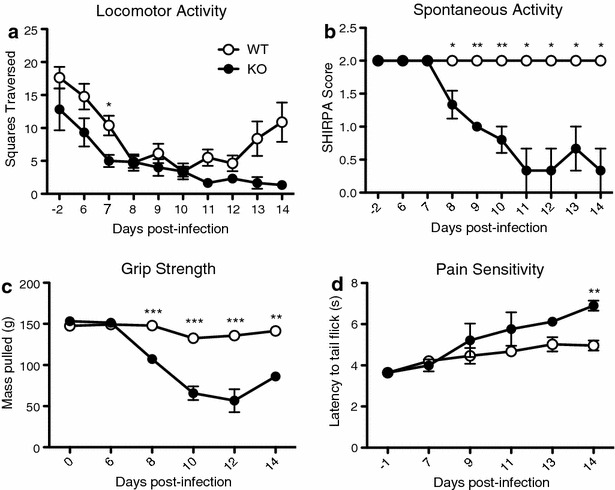Fig. 1.

IL-10−/− mice exhibit impaired general health, neurological reflexes and baseline behavioural measures during Plasmodium chabaudi infection. As part of the comprehensive SHIRPA behavioural assessment in infection-matched IL-10−/− (KO) and C57Bl/6J (WT) control mice, (a) locomotor activity was measured by allowing the mice to explore a novel grid enclosure for 30 s. The number of squares traversed by all four feet was measured within the allotted time. b Spontaneous activity was measured by observing the mouse within an enclosed environment for 2 min. Scores ranged from 0 (no activity, resting) to 4 (extremely vigorous, rapid/dart movement), with the baseline score being 2 (vigorous scratch, groom, moderate movement). c Animal forelimb grip strength was tested using a digital force-gauging apparatus measuring maximal grams of resistance. Animals were subjected to 3 trials (with at least 10 min of rest between each trial). d Nociceptive pain sensitivity was tested by a tail flick analgesia apparatus to measure the latency of tail removal from a nociceptive stimulus. Student’s t test (a, c, d) or Rank sum test (b) *p < 0.05, **p < 0.01, ***p < 0.001. Data points and error bars represent mean values and ± SEM, respectively
